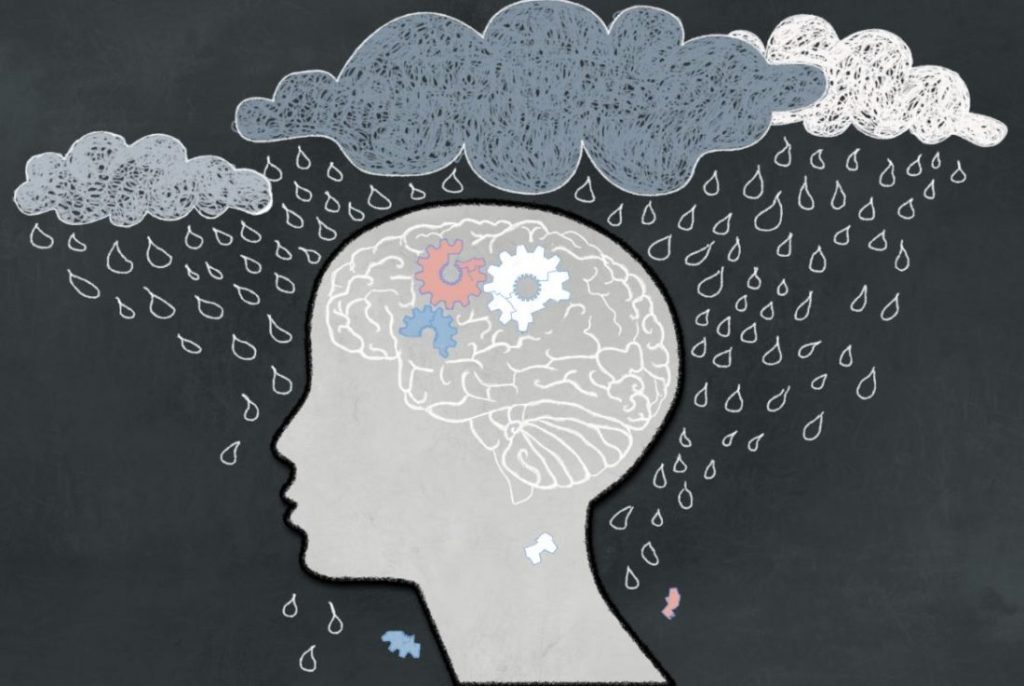Depression is a common mental disorder that causes people to feel sad, hopeless, and worthless for long periods. It can be difficult to cope with major depression on your own. But there are many treatment options available. In this comprehensive guide, we will discuss everything you need to know about this peculiar depression.
We will cover the signs and symptoms, causes, and treatment options for this condition. We will also provide self-help tips for managing this type of depression. If you or someone you know is struggling with this depression, please seek help from a professional!
Contents
Understanding Major Depression
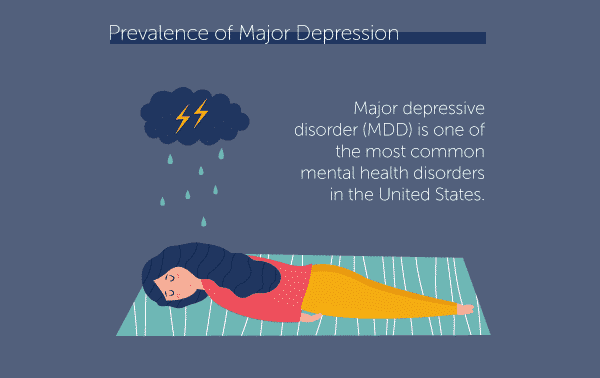
Major depression is a mood disorder that causes people to feel sad, hopeless, and worthless for long periods. It is one of the most common mental disorders in the United States. It is affecting more than 16 million adults each year. This depression can affect people of any age. But it is most common in adults. It also affects children and older adults more often than other age groups.
What Are Its Different Types?
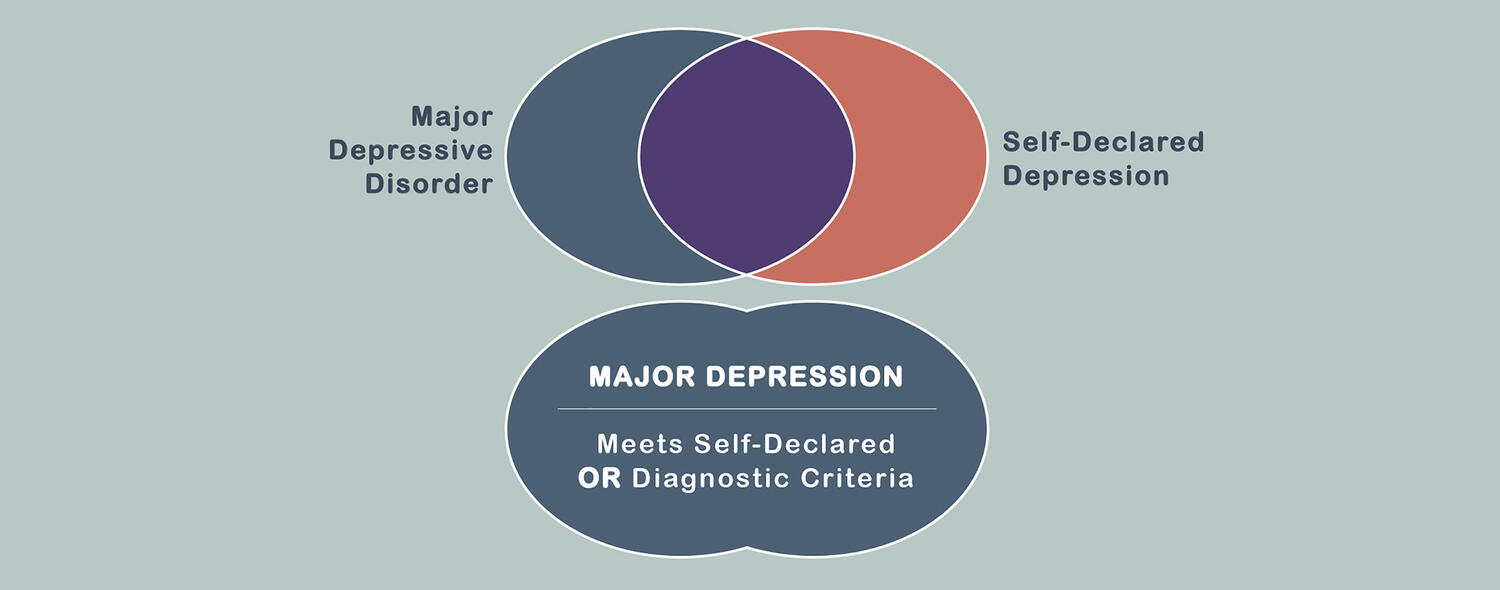
The National Institute of Mental Health (NIMH) classifies major depression into five categories:
Classic or unipolar depression: This type of major depression is characterized by one or more episodes of deep sadness, loss of interest in activities, and feelings of despair.
Atypical depression: This type of major depression includes symptoms that are not typically seen in classic unipolar depression, such as increased appetite and weight gain, excessive sleepiness, and a lack of energy.
Psychotic depression: This type of major depression is characterized by symptoms such as hallucinations (seeing or hearing things that are not there) and delusions (believing things that are not true).
Bipolar disorder: This type of major depression is also known as manic-depressive illness. It is characterized by episodes of mania (an extreme state of excitement and euphoria) and depression.
Seasonal affective disorder (SAD): This type of major depression is characterized by depressive symptoms that occur during the winter months when there is less sunlight.
What Are Other Types Of Major Depression?
There are a number of other types of major depression that are not listed above. Some of these include:
Depression with peripartum onset: This type of major depression occurs during the period surrounding childbirth.
Postpartum depression: This type of major depression occurs in women who have recently given birth and is characterized by extreme sadness, anxiety, and fatigue.
Premenstrual dysphoric disorder (PMDD): This type of major depression is characterized by severe mood swings and depressive symptoms that occur shortly before a woman’s menstrual period.
What Are The Signs And Symptoms Of This Depression?
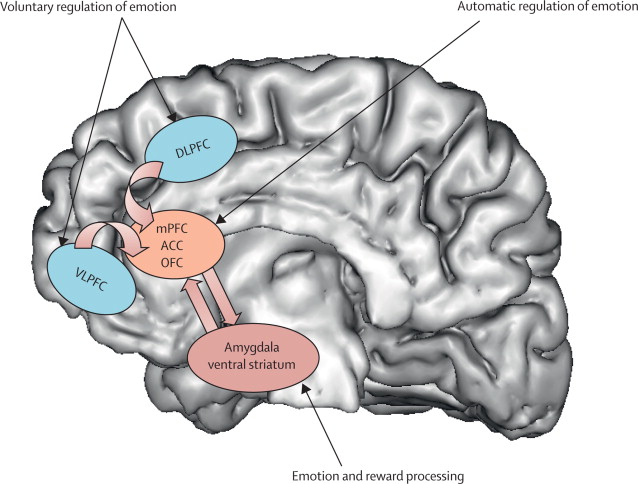
The signs and symptoms of this depression vary from person to person, but often include:
Depressed mood: A depressed mood is the most common sign of this depression. People with this condition often feel sad, hopeless, and worthless.
Loss of interest in activities: People with this depression often lose interest in activities that they used to enjoy. They may no longer find pleasure in things they used to enjoy. Or they may have trouble getting motivated to do anything.
Changes in weight or appetite: It can cause people to lose or gain weight, often without explanation. People with this condition may also have a change in their appetite, either eating more or less than usual.
Trouble sleeping or oversleeping: People with this depression may have trouble falling asleep at night, wake up frequently during the night, or oversleep in the morning.
Agitation or slowed behavior: People with this depression may feel restless and agitated, or they may move more slowly than usual.
Fatigue: People with this depression often feel extremely tired and drained. No matter how much sleep they get.
Poor concentration: This depression can make it difficult to focus on tasks and remember things.
Feelings of guilt or worthlessness: People with this depression often feel guilty and worthless for no reason.
Thoughts of suicide: A large number of people with this depression experience thoughts about suicide.
How Does Brain Change During During This Depression?
The brains of people with this depression look different from the brains of people without the condition. Studies have shown that the hippocampus, which is involved in mood regulation, is smaller in people with this depression. Additionally, the prefrontal cortex and anterior cingulate cortex (areas of the brain involved in decision-making and problem-solving) are more active in people under this condition.
What Are The Causes Of This Depression?
The exact cause of this depression is unknown. But it is a consensus that it is a consequence of a combination of many factors.
Genetic factors: Some people may be more likely to develop this depression because of their genes.
Biological factors: Certain changes due to certain chemicals in the brain, such as serotonin and norepinephrine can result in this depression
Environmental factors: Traumatic events, such as a death or illness in the family, can trigger this depression. Stressful life events. Such as a divorce or job loss, can also increase the risk.
Psychological factors: People with this depression may be more likely to experience negative thoughts and feelings about themselves and the world around them.
How Does It Affect Other Areas Of Life?
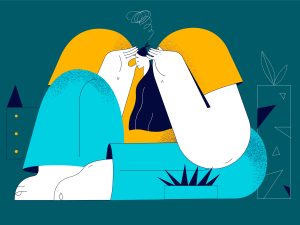
It can affect every area of a person’s life, including:
Work or school: People with this depression may have trouble concentrating and performing well at work or school.
Relationships: It can cause people to lose interest in their relationships and withdraw from friends and family. It can also lead to fights and conflict.
Physical health: People with this depression are more likely to experience physical health problems. Such as headaches, chest pain, and fatigue.
What Is The Outlook For People With This Depression?
The outlook for people with major depression varies from person to person. Some people may experience a full recovery. While others may have symptoms that persist for years. However, most people with this depression who get successful treatment can lead healthy, productive lives.
Coping With Major depression
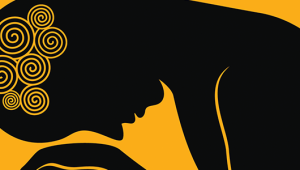
There are many things that people can do to cope with this depression. Some self-help tips include:
Getting regular exercise: Exercise can help to improve mood and energy levels.
Eating a healthy diet: Eating nutritious foods can help to boost mood and energy.
Getting enough sleep: Getting adequate sleep can help to improve mood and energy levels.
Talking to a therapist: Therapy can help people learn how to cope with this depression.
Taking medication: Some people may need medication to help control their symptoms.
What Are The Treatment Options For This Depression?
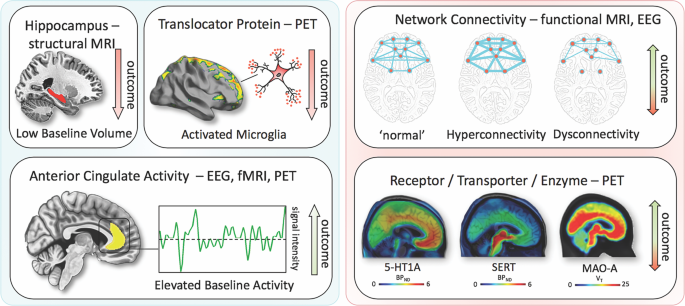
There are many different treatment options for this depression. Some of the most common treatments include:
Therapy: Therapy is a type of treatment in which a person talks with a therapist about their thoughts and feelings.
Medication: Medication is a type of treatment in which a person takes medication to help control their symptoms.
Brain stimulation: Brain stimulation is a type of treatment in which a person uses electrical currents to stimulate the brain. There are three main types of brain stimulation:
- Electroconvulsive therapy (ECT): ECT is a type of brain stimulation in which a person receives electrical currents to the brain.
- Transcranial magnetic stimulation (TMS): TMS is a type of brain stimulation in which a person uses magnets to stimulate the brain.
- Vagus nerve stimulation (VNS): VNS is a type of brain stimulation in which a person uses electrical currents to stimulate the vagus nerve.
NOTE: It is not fully understood how brain stimulation causes a change in the brain, but it is believed that electrical currents help to restore normal function to the areas of the brain that are affected by depression.
What Are The Therapies For Treating this Depression?
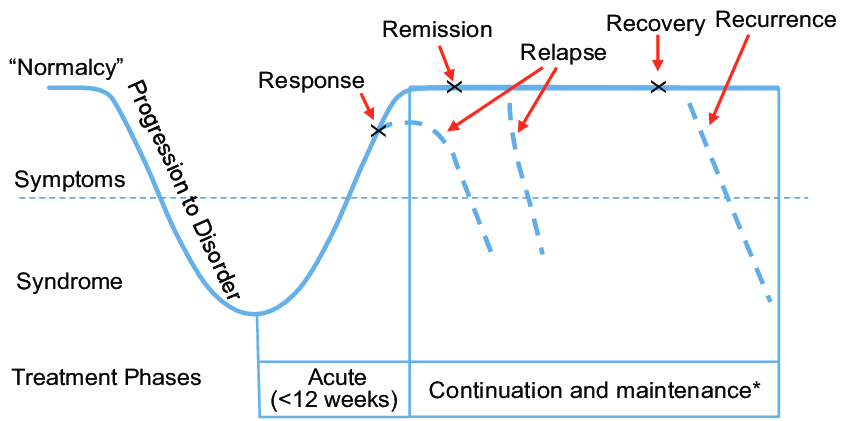
There are many different therapies for treating this depression. Some of the most common therapies include:
Psychotherapy: Psychotherapy is a type of therapy in which a person talks with a therapist about their thoughts and feelings.
Cognitive-behavioral therapy (CBT): CBT is a type of psychotherapy that helps people change the way they think and behave.
Interpersonal therapy (IPT): IPT is a type of psychotherapy that helps people improve their relationships.
Psychodynamic therapy: Psychodynamic therapy is a type of therapy in which a person explores the roots of their depression.
Electroconvulsive therapy (ECT): ECT is a type of therapy in which professionals pass electrical currents through the brain to help treat major depression.
Medication: Medication is a type of treatment in which a person takes medication to help control their symptoms.
What medications are administered in this depression?
Some of the most common medications used to treat this depression include:
Selective serotonin reuptake inhibitors (SSRIs): SSRIs are a type of medication that helps to increase the amount of serotonin in the brain.
Serotonin and norepinephrine reuptake inhibitors (SNRIs): SNRI is a type of medication that helps to increase the amount of serotonin and norepinephrine in the brain.
Atypical antipsychotics: Atypical antipsychotics are a type of medication that helps to treat psychotic symptoms. Such as hallucinations or delusions.
Antidepressants: Antidepressants are a type of medication that helps to treat depression.
What Should I Do If I Suspect That I Have This Depression?
If you suspect that you have this depression, it is important to see a doctor or mental health professional. They will be able to diagnose you and recommend treatment options.
Talking To a Professional
If you are struggling with this depression, it may be helpful to talk to a professional. Some professionals who can help include:
Therapists: Therapists are people who specialize in helping people deal with their mental health problems.
Psychiatrists: Psychiatrists are doctors who specialize in treating mental health problems.
Cognitive-behavioral therapists (CBT): CBT is a type of therapy that helps people change the way they think and behave.
Interpersonal therapists (IPT): IPT is a type of therapy that helps people improve their relationships.
What Do Experts Say?
There is a growing body of evidence that suggests major depression is a real and serious illness. The National Institute of Mental Health (NIMH) estimates that this depression affects about 16 million adults in the United States each year. Major depression is one of the most common mental disorders in the country.
Experts say that major depression is a serious mental health condition. Therefore, that needs treatment and professional intervention. They also say that we can treat it successfully with the right combination of therapies and medications.
Case Study
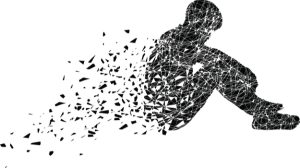
Case Example 1
One famous case study of major depression is that of Kay Redfield Jamison. Jamison is a professor of psychiatry at Johns Hopkins University. And has written extensively about her battle with bipolar disorder and major depression. She has also published several books on the topic. Including “An Unquiet Mind” and “Night Falls Fast: Understanding Suicide.”
Case Example 2
John is a 34-year-old man who has major depression. He is currently in therapy and is taking medication to help control his symptoms. John says that he has been feeling better since starting treatment. And that he is hopeful that he will be able to fully recover.
Movies And Books
Many movies and books explore this topic. Some of the most well-known titles include:
- “The Bell Jar” by Sylvia Plath
- “Perks of Being a Wallflower” by Stephen Chbosky
- “Girl, Interrupted” by Susanna Kaysen
- “Silver Linings Playbook”
- “The Hours” by Michael Cunningham
Conclusion
Major depression is a serious mental illness that can cause significant problems in every area of a person’s life. However, professionals can treat it successfully with therapy and medication. There are many different treatment options available. So it is important to talk to a doctor about what may be the best fit for you.
A Word From Therapy Mantra
Your mental health — Your psychological, emotional, and social well-being — has an impact on every aspect of your life. Positive mental health essentially allows you to effectively deal with life’s everyday challenges.
At TherapyMantra, we have a team of therapists who provide affordable online therapy to assist you with issues such as anxiety, stress, workplace Issues, addiction, relationship, OCD, LGBTQ, and PTSD. You can book a free therapy or download our free Android or iOS app.
